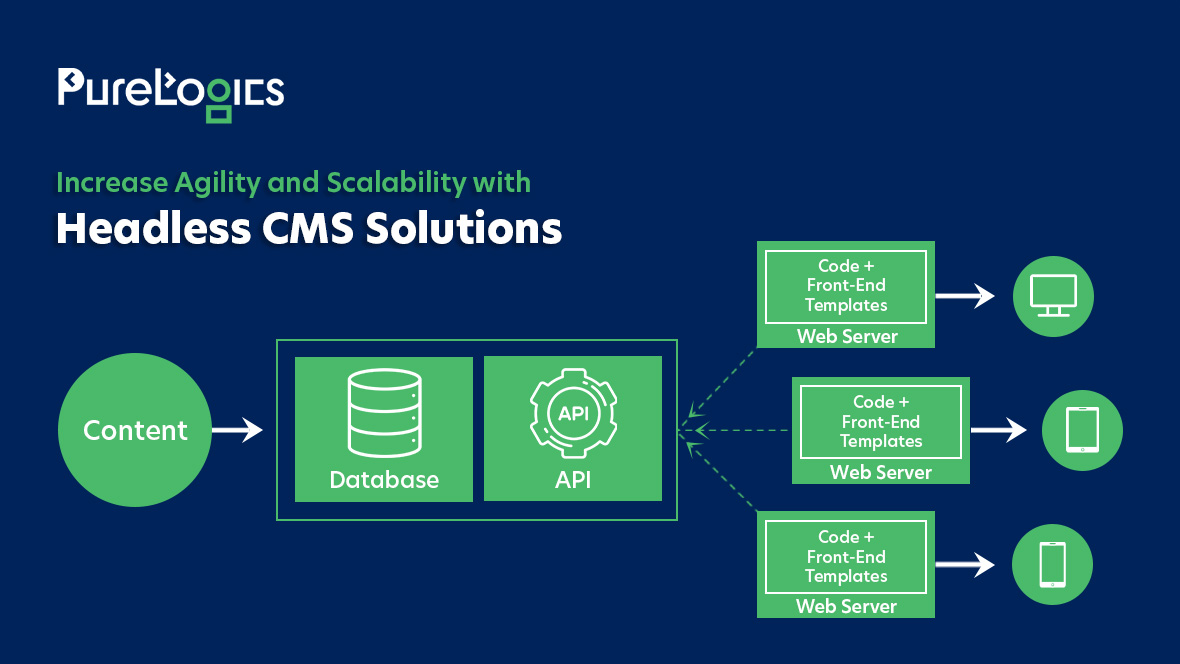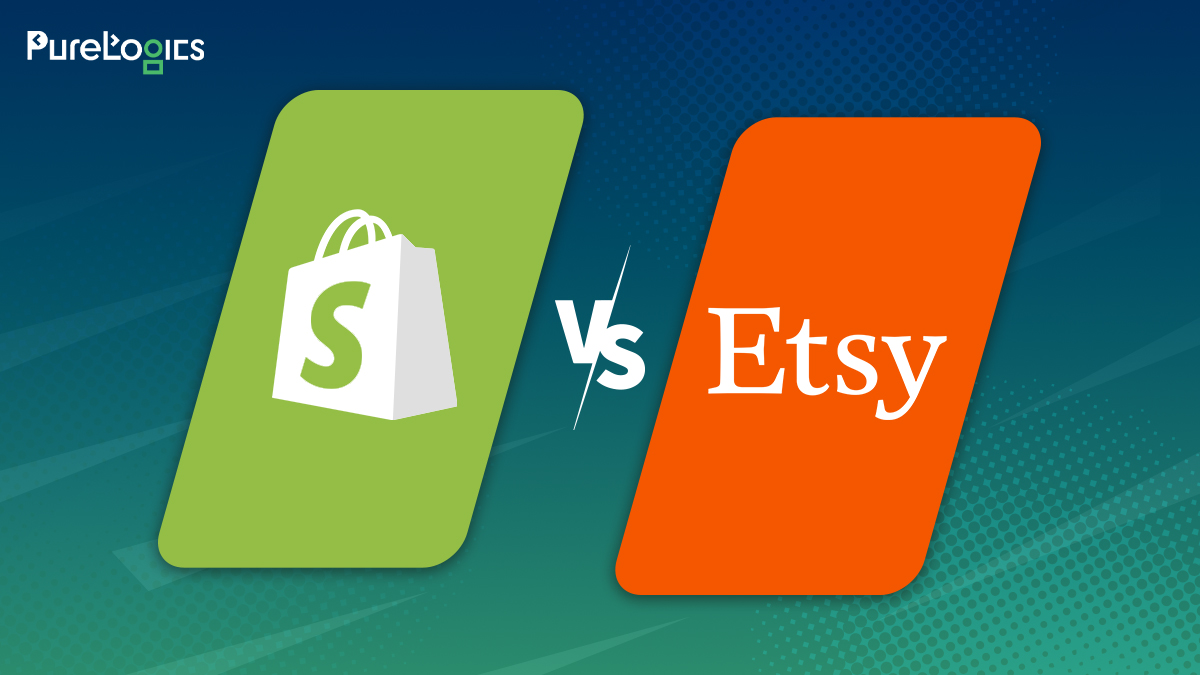Both Shopify and WordPress are two of the most popular e-commerce platforms, but which is better, Shopify vs WordPress? Google and other search engines are loaded with this question.
There is so much bombardment of information there on Google that people find it difficult to get the right answer.
We understand that e-commerce trends are continuously rising in demand, and choosing the right platform has become one of the major factors in success.
So, in order to help you, we’ve come up with a detailed and honest comparison of Shopify and WordPress. We have discussed in detail what Shopify and WordPress are, their pros and cons, and the differences between the two e-commerce platforms.
Without any further ado, let’s start reading shopify vs wordpress!
What is Shopify?
Shopify is an all-inclusive e-commerce platform for small-scale and large-scale businesses. When it comes to user interface, Shopify’s user interface is better than all other e-commerce platforms.
It provides you with a comprehensive list of features that you can effortlessly modify according to the needs and values of your brand. The best thing that makes it stand out in the competition is its ability to sell both digital as well as physical items.
Shopify aims to pave the way for young entrepreneurs who intend to establish online stores but are unaware of the coding processes.
If you aim to modify anything in your online store, you can use CSS, HTML, and Liquid. Shopify entertains all these coding languages. It is one of the top reasons that most e-commerce stores today are developed using the Shopify platform.
User-friendly: Shopify has the best, user-friendly interface. It makes it accessible for both new and experienced users.
Fully hosted: Shopify is a fully hosted e-commerce platform. It means that you don’t need to worry about web hosting or even server maintenance.
Diverse templates: Shopify provides entrepreneurs with all types of customizable templates and themes. Whatever your brand values and aesthetics are, you can easily choose from the provided templates and themes on Shopify.
App store: The Shopify App Store has thousands of apps and integrations. The functionality of your e-commerce store will increase for sure with Shopify’s app store.
Mobile optimization: When it comes to mobile optimization, Shopify is the most reliable option for your store. Your store will be properly optimized for mobile devices because Shopify understands the needs and requirements of the present mobile-first world.
Security: Shopify boasts robust security features. It includes SSL certification that will protect your customer data.
Payment options: Shopify supports a diverse range of payment options. It offers flexibility for both businessmen and customers.
Pros and Cons of Shopify
Pros:
- Easy setup and use
- Excellent customer support
- Safe, secure, and reliable
- Highly scalable for businesses of all sizes and types
- All-inclusive app store for customization
Cons:
- Monthly subscription fees
- Transaction fees for third-party payment gateways
- Limited design customization for advanced users
What is WordPress?
WordPress is another widely used content management system (CMS). It is also famous among business owners and customers for its all-embracing features and options.
WordPress usually has two different forms:
- Hosted WordPress
- Self-hosted WordPress
Hosted WordPress is known for its domain name, i.e., wordpress.com. And this type of WordPress operates in SaaS mode. Companies don’t install this version on their computer hardware before using it. Everything on this site happens remotely.
Nevertheless, this type of WordPress isn’t an all-inclusive solution. If you want to establish an e-commerce site, you need to use some other tools, such as Ecwid, WooCommerce, etc.
On the other hand, self-hosted WordPress is a web application. You can easily download it from wordpress.org and install it on your web server.
Yes, this download is totally free, but you always need to purchase a domain name with considerable hosting costs to make your e-commerce site functional. For a self-hosted version of WordPress, you need to hire experienced developers to make your personalized online store.
Here are the top 7 facts about WordPress:
Open source: WordPress is open-source software. It means that it is free, and you can make your store highly customizable.
Vast community: It boasts a massive community of developers and users and offers a wide range of resources and plugins.
Content-focused: WordPress is originally a blogging platform. It excels in content management and makes it a good option for e-commerce businesses that are content-driven.
Customization: You can modify your WordPress site according to your requirements, as it offers thousands of themes and plugins.
SEO-friendly: WordPress, undoubtedly, is SEO-friendly. It will surely help you rank your site in the SERPs.
Flexibility: WordPress is not limited to e-commerce. Using it, you can make different kinds of websites.
Self-hosting: You have the flexibility to choose your hosting provider. WordPress gives you full control over your site’s performance and security.
Pros and Cons of WordPress
Pros:
- Highly customizable
- Intensive plugin ecosystem
- Excellent SEO capabilities
- Complete freedom to choose hosting providers
- Excellent for content marketing
Cons:
- Difficult to use for beginners
- Requires regular updates as well as maintenance
- Security vulnerabilities if store not properly managed
So, Which is a Better E-Commerce Platform? Shopify vs WordPress
Simplicity and User-Friendly Experience
As mentioned above, when it comes to user-friendly interfaces, no e-commerce platform can compete with Shopify. It is easy to use and makes it easy for businesses to understand and manage its functionalities.
Shopify takes care of everything. Whether it is hosting, security, or technical aspects, Shopify removes all the worries and headaches of managing your e-commerce site.
On the other hand, WordPress also offers flexibility and customization options, but it is difficult for newcomers as it requires a lot of technical expertise. You need to handle everything, like hosting, security, and technical aspects, on your own or with the help of third-party services.
Ecommerce Features and Built-In Tools
Shopify has been built especially for e-commerce purposes. When it comes to selling processes, Shopify is the best solution. It offers a diverse range of built-in tools and incredible features for your online store.
Whether it is order processing, payment processing, inventory management, or abandoned cart recovery, Shopify takes care of everything. You don’t need to install third-party plugins or extensions to efficiently set up and run your store.
While WordPress can only be made a powerful e-commerce platform if you use plugins like WooCommerce and Ecwid.
Shopify and WordPress are not native e-commerce platform. You need to rely on different plugins to efficiently manage your store. These processes make WordPress difficult to use for young entrepreneurs who want to launch their start-ups.
Security and Reliability
Again, when it comes to security and privacy, no one is better than Shopify. It has SSL certification and protects your customer and business data. There are very few chances of data breaches or hacking on Shopify.
What you only need to do is focus on the provision of your services. Shopify handles everything regarding security and privacy.
A self-hosted WordPress site places the responsibility for security largely in your hands. You need to use different security plugins and take the proper security measures to avoid attacks on your site.
Scalability for Future Growth
Whether you are a start-up or have an established brand, Shopify is, undoubtedly, the best option. This platform offers high scalability and provides you with all the things you need to grow your online business.
On the other hand, WordPress is also scalable, but it requires a lot of effort and technical expertise. You need to invest a lot and use different third-party plugins to scale your store’s future growth.
Customer Support and Resources
When it comes to e-commerce, Shopify offers the world’s best customer support. They have different support channels, like live chat, email, and phone support. Moreover, it provides you with comprehensive documentation and a large community of resources that can help you successfully run your business.
There is no doubt that WordPress also has a vast community, but its customer support depends on the hosting provider and the types of plugins you use.
To get proper customer support, you need to consider different blogs and forums, which makes it less reliable than Shopify’s dedicated customer support.
How PureLogics Can Help You With Shopify Development
If you are inclined toward Shopify and need the world’s best expertise and assistance, our dedicated team of Shopify developers can help you.
We have 17+ years of experience in the e-commerce industry. Our best and brightest minds will help you build an e-commerce store that your targeted customers will adore, for sure.
Contact us now. We offer a free 30-minute consultation call. The clock is ticking; don’t wait for another second.
PureLogics: We believe in logic, not magic!


 [tta_listen_btn]
[tta_listen_btn]
 October 10 2023
October 10 2023






